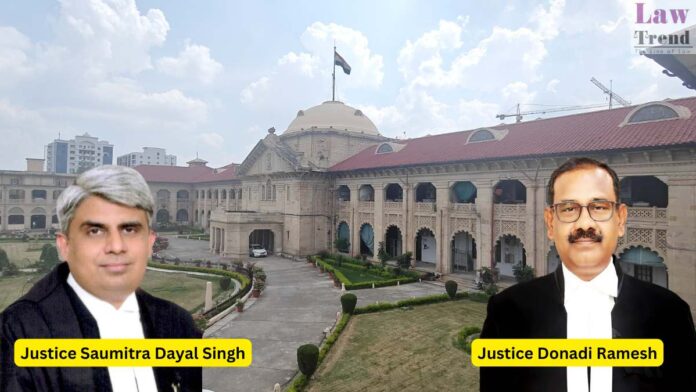In a significant ruling, the Allahabad High Court set aside a divorce decree issued by a lower court, emphasizing that a decree based on mutual consent requires continued agreement from both parties at every stage. The judgment was delivered by a division bench comprising Justice Saumitra Dayal Singh and Justice Donadi Ramesh in the case
To Read More Please Subscribe to VIP Membership for Unlimited Access to All the Articles, Download Available Copies of Judgments/Order, Acess to Central/State Bare Acts, Advertisement Free Content, Access to More than 4000 Legal Drafts( Readymade Editable Formats of Suits, Petitions, Writs, Legal Notices, Divorce Petitions, 138 Notices, Bail Applications etc.) in Hindi and English.




